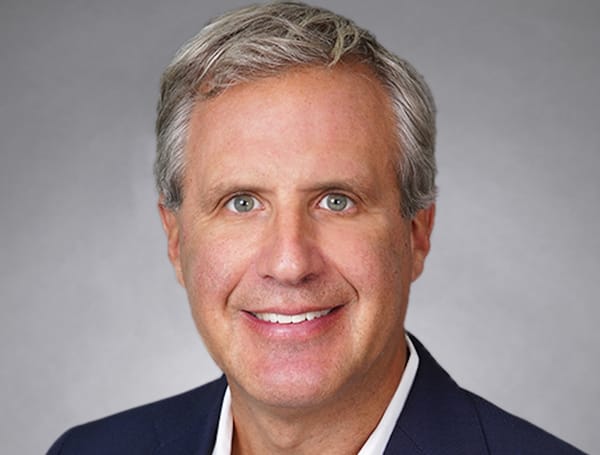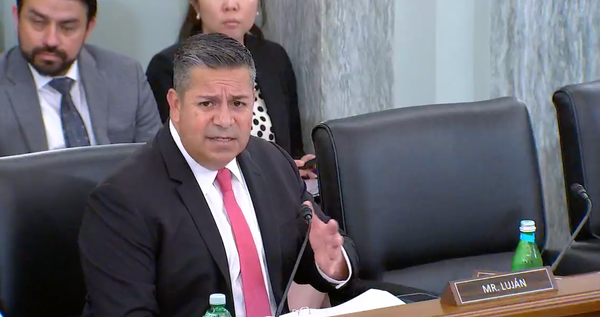12 Days: How Soon Will the Affordable Connectivity Program Expire?
The remaining funds are anticipated to be depleted by May 2024, according to the ACP Dashboard tracker.

December 23, 2023 – Around $3.6 billion in funds are projected to be remaining from the $14.6 billion Affordable Connectivity Program, a federal assistance initiative that has supported 1 in 6 Americans (or 22 million American households), in sustaining their internet subscription costs during 2023.
These remaining funds are anticipated to be depleted by May 2024 if enrollment continues at the current rate, according to the ACP Dashboard monitoring tool developed by the advocacy group Institute for Local Self-Reliance.
- On the First Day of Broadband, my true love sent to me:
One Artificial General Intelligence - On the Second Day of Broadband, my true love sent to me:
24 Reverse-Preemption Pole Attachment States (2023 edition)
And One Artificial General Intelligence - On the Third Day of Broadband, my true love sent to me:
$3.6 Billion Funds Remaining in the Affordable Connectivity Program
24 Reverse-Preemption Pole Attachment States (2023 edition)
And One Artificial General Intelligence
A bipartisan majority of voters – 78 percent – support the continuation of the program, according to a national survey conducted by Public Opinion Strategies and RG Strategies in January 2023. This sentiment includes 64 percent of Republicans, 70 percent of Independents, and 95 percent of Democrats,
Despite receiving strong bipartisan public support, the program faced criticism last week from Republican leaders in the House and Senate commerce committees. They expressed concerns about the administration’s spending, labeling it as “wasteful,” and conveyed skepticism regarding the ACP’s effectiveness in a letter addressed to Federal Communications Commission Chairwoman Jessica Rosenworcel.
Efforts to continue ACP
Throughout this year, there have been numerous endeavors aimed at extending and enhancing the program.
In May, during a congressional oversight hearing, Alan Davidson, the administrator of the National Telecommunications and Information Administration, conveyed to Congress members that the Broadband Equity, Access, and Deployment program would suffer adverse effects if continued funding for the ACP is not found.
In an Expert Opinion piece for Broadband Breakfast, Ryan Johnston, senior policy counsel at Next Century Cities, also linked the two issues: If the ACP is allowed to end, the federal government could end up overspending on every broadband deployment. In other words, BEAD networks will be unable to link millions of Americans without ACP.
In August, 45 bipartisan members of Congress publicly expressed support for extending ACP. In October, the Biden administration asked Congress for $6 billion to extend the ACP through December 2024. In November, a bipartisan letter signed by 26 Republican and Democratic governors urged Senate leaders to continue funding the program.
Broadband providers also want to see the program continued, asking Congress in September to use money from another yearly broadband subsidy to keep the ACP afloat.
The FCC event initiated the ACP Transparency Data Collection in November to enhance comprehension of the program. This collection gathers fresh data concerning price details, plan characteristics, subscription rates, and the attributes of program participants. Presently, the data collection initiative is expected to coincide with the depletion of the fund.
Next Century Cities’s Johnston and Lauren Gaydos, director of the Glen Echo Group, speaking during a Broadband Breakfast event in December, expressed concern over the arduous task of reenrolling individuals if the program terminates and then restarts. That would erode trust in the program’s stability and reliability.
Also on the program, Christine Parker, senior GIS analyst at ILSR’s Community Networks Initiative, highlighted that program participation has steadily increased by 3 percent each month. She emphasized that there are no signs of this trend slowing down during the event. And Johnston said that, in his previous discussions with the FCC and the Universal Service Administrative Company, neither agency intends to issue a notice signaling the end of the program.
Instead, both agencies plan to wait until the final possible moment to guarantee the securing of ACP funding.
See “The Twelve Days of Broadband” on Broadband Breakfast

- On the First Day of Broadband, my true love sent to me:
One Artificial General Intelligence - On the Second Day of Broadband, my true love sent to me:
24 Reverse-Preemption Pole Attachment States (2023 edition)
And One Artificial General Intelligence - On the Third Day of Broadband, my true love sent to me:
$3.6 Billion Funds Remaining in the Affordable Connectivity Program
24 Reverse-Preemption Pole Attachment States (2023 edition)
And One Artificial General Intelligence










